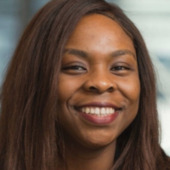
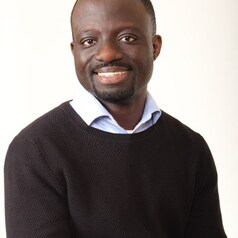
Oluwamayokun Adetoro
Senior Lecturer, Mechanical and Aerospace Engineering, Brunel University London
Mayo is a senior lecturer in Aerospace Engineering and prior to joining academia he worked in the aircraft manufacturing industry. He PhD was at Queen Mary University of London and it was on the bifurcation of dynamical systems and stability theory and its application in manufacturing processes. He subsequently worked as a Research Fellow at Queen Mary. His expertise is in numerical modelling and his research is focused on the analytical and numerical modelling of fluid and solid continua. Recent works have focused on the development of analytical models, modelling of multi‑phase fluid flow, flow atomisation and the scaling of solid and fluid continua.
His current research is focused on the modelling of Fluid-Structural Interaction and his research interest is on turbulence modelling, shape and topology optimisation.
Less ![]()
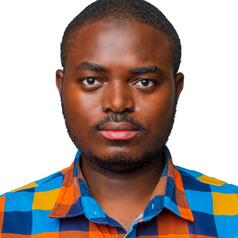
Oluwaseun Abdulganiyu Badru
PhD student, University of Iowa
Oluwaseun Badru is a PhD student of the department of Community and Behavioral Health at the University of Iowa. He has a keen interest in primary and secondary HIV research, as well as interventions focused on behavioral change.
Less ![]()
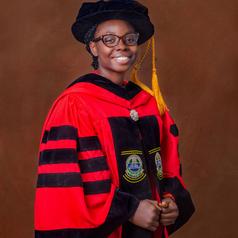
Oluwaseyi Omowunmi Popogbe
Lecturer II, Crawford University
Dr Oluwaseyi Omowunmi Popogbe had a first class in economics (BSc Hons) from Crawford University, where she currently lectures in the Department of Economics. She got her MSc and PhD in economics from the University of Lagos. Her PhD thesis focused on providing an analytical measure and revealing the dynamics of social exclusion and poverty in Lagos State slums. Her core areas of research include development economics, environmental economics and monetary economics.
Less ![]()
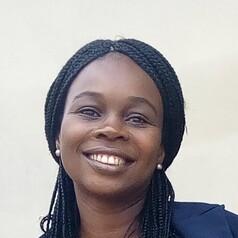
Oluwatosin Olorunmoteni
Neurodevelopmental Paediatrician, Obafemi Awolowo University
I am a neurodevelopmental paediatrician with a special interest in child and adolescent sleep and brain development.
Less ![]()

Olympia Nelson
PhD Candidate in Modern Greek & Byzantine Studies specialising in Byzantine art and literature, University of Sydney
Olympia Nelson is a PhD Candidate at the University of Sydney, with a research focus on the history of emotions in Byzantinum, drawing upon literary as well as visual material. Her academic interests include hagiography, Komnenian art and the Komnenian novella genre, art history and iconoclasm.
Less ![]()

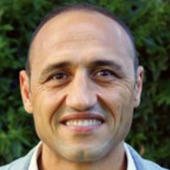
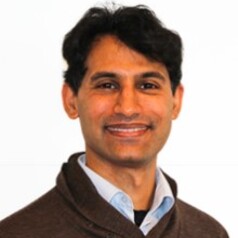
Omar Shahabudin McDoom
Associate Professor in Comparative Politics, Department of Government, London School of Economics and Political Science
Omar Shahabudin McDoom is a comparative political scientist and Associate Professor in the Department of Government at the London School of Economics and Political Science. His research interests lie in peace and security. He specializes in the study of conflicts and violence framed along ethnic and religious boundaries, and in strategies that promote co-existence and cooperation between social groups in plural societies. He has field expertise in sub-Saharan Africa — primarily Rwanda, Burundi, the Democratic Republic of the Congo, and Uganda — and in South-East Asia, notably the Philippines.
Dr McDoom’s work has been published in International Security, the Journal of Peace Research, and the Journal of Conflict Resolution. He has held research fellowships at Harvard and Oxford universities. His professional experience includes work as a Policy Officer for the World Bank, as a Legal Officer for the Government of Guyana, and on electoral missions for the OSCE and UN.
He holds law degrees from King’s College London and the Université de Paris I, Panthéon-Sorbonne, a Master’s degree in International Development Studies from George Washington University, and a PhD in Development Studies from the London School of Economics and Political Science. He is also an attorney (non-practicing) admitted in New York.
Less ![]()
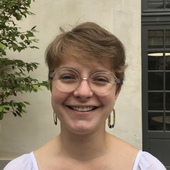
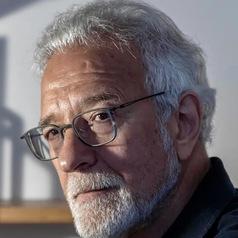
Omer Bartov
Professor of Holocaust and Genocide Studies, Brown University
Omer Bartov is the Samuel Pisar Professor of Holocaust and Genocide Studies at Brown University and the author, most recently, of Genocide, the Holocaust, and Israel-Palestine: First-Person History in Times of Crisis (2023), The Butterfly and the Axe. A Novel (2023), Tales from the Borderlands: Making and Unmaking the Galician Past (2022), and Anatomy of a Genocide: The Life and Death of a Town Called Buczacz (2018).
Less ![]()

Omid Akbari
Professor of Molecular Microbiology and Immunology, University of Southern California
Dr. Akbari obtained his Ph.D. from Brigitta Stockinger’s laboratory in the Division of Molecular Immunology at the National Institute for Medical Research in UK. He performed postdoctoral work at Stanford University and in 2004 became Assistant Professor of Allergy and Immunology at Harvard Medical School. In 2008, Dr. Akbari joined the Department of Molecular Microbiology and Immunology, USC Keck School of Medicine, where he is currently Professor of Immunology. Dr Akbari’s research is focused on understanding the molecular and cellular mechanisms orchestrating the differentiation and function of innate and adaptive immune responses. Major areas of interest include: the molecular and cellular mechanisms governing the differentiation and function of regulatory T cells, dendritic cells and innate lymphoid cells and the potential roles these cells play in vaccination, autoimmunity, inflammation, cancer and infection.
Dr. Akbari is a recipient of several national and international grants and awards such as: American Lung Association fellowship award, the American Lung Association Research Grant, The Pharmacia award for the best research in the field of Immunology, Henning Loewenstein Research award for the excellent research in the field of Immunology. He is also a recipient of the Eleanor and Miles Shore prestigious grant from Harvard Medical School and several other grants from the National Institute of Health. He is currently serves as Associate Editor of several journals and also serves as a reviewer for several NIH and non-NIH study sections.
Less ![]()
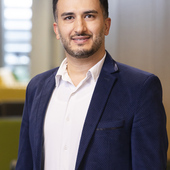
Omid Aliasghar
Senior Lecturer, Management and International Business, University of Auckland, Waipapa Taumata Rau
Less ![]()
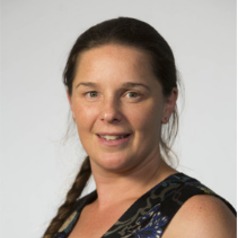
Ondine Bradbury
PhD Candidate, Monash University
Ondine is an educator with over 15 years of teaching and leadership experience. Her research focuses on the areas of teacher development, school-university-industry partnerships, STEM education and rural education. More recently, her work has involved delivering professional development for classroom teachers and leaders to enhance their skills in supporting high-ability learners. Ondine is passionate about critical literacy in the middle years, focusing on equipping students with the ability to critically analyse texts and the world around them. She is dedicated to creating innovative, transformative educational experiences that unify various educational sectors.
Less ![]()
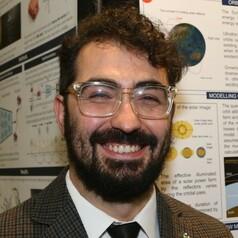
Onur Çelik
Postdoctoral Research Associate in Space Technology, University of Glasgow
I am currently a postdoctoral research associate in space technology at the University of Glasgow. My research interests are broadly in the fields space systems engineering and planetary science. As part of my research I primarily investigate orbits and their suitability for a given space mission. In my current role, I do this in the context of orbiting solar reflectors as a concept of space-based solar power to enhance the utility of solar power farms beyond the daylight hours.
Less ![]()
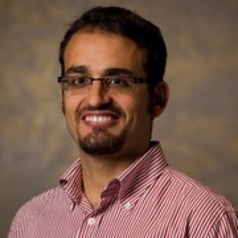


Or Dagan
Assistant Professor of Clinical Psychology, Long Island University Post
I am a professor of clinical psychology at Long Island University, where I conduct Attachment research, teach doctoral-level seminars (including psychotherapy interventions and developmental psychopathology), and supervise doctoral students. I am also a New York State licensed clinical psychologist. I use my educational, research and practice platforms to promote sensitive communication between people, which I believe stands at the heart of well-being.
As a researcher, I study how early relationships with our parents influence our mental and physical health, and the quality of our close relationships later in life. I do so by investigating how individuals across the lifespan behave with their parents at times of distress, and how they remember and talk about these experiences years later. As a clinical psychologist, I apply an attachment-informed framework to therapy, which I keep developing through my research to scaffold my understanding of the difficulties clients experience.
I am thankful for being in a unique position to both inform my clinical practice with cutting-edge research findings, and inform my research endeavors with extensive hands-on clinical experience I gain from interacting with patients.
Less ![]()
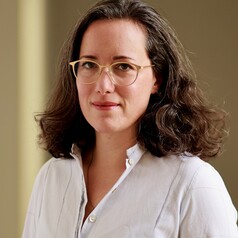
Or Rosenboim
Associate professor, Università di Bologna
I am Associate Professor of Contemporary History at the University of Bologna, Italy, and Visiting Fellow at the Robert Schulman Centre, European University Institute, Florence. My work focuses on the history of international thought in the twentieth century. I am especially interested in the history of ideas about world order. My books include the award-winning The Emergence of Globalism: Visions of World Order in Britain and the United States, 1939-1950 (Princeton 2017), and more recently, Air and Love: A story of family, food and belonging (Picador 2024).
Less ![]()
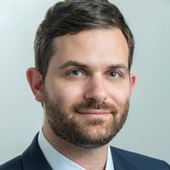
Oren Reshef
Assistant Professor of Strategy and Entrepreneurship, Washington University in St. Louis
Less ![]()
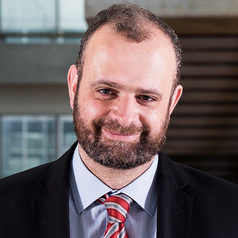
Oreste Pollicino
Professor of Constitutional Law, Bocconi University
I am full professor of constitutional law in Bocconi. I also teach the courses on GDPR, media law, internet law and I am the director of the LLM in law of internet technologies in Bocconi University. I am Honest Broker appointed by the European Commission for the negotiation on the ‘European code of practice on disinformation’; I am also member of the executive board, European Union Agency for Fundamental Rights, Vienna; board member of the digital library, Ministry of Culture; member of the European Commission Sounding Board of the Multistakeholder in the fight against online disinformation; participant to the Conseil of Europe Ad Hoc Committee on Artificial Intelligence (CAHAI); Italian member of the OECD Global Partneship on Artificial Intelligence.
My research is focused on constitutional law and cuts across the issues of the digital age, looking at the delicate relationship between public and private actors and how this impacts on this exercise and the protection of fundamental rights. My research has centred on:
1) European and Comparative Constitutional Law;
2) Digital Constitutional Law;
3) Media Law;
4) Internet Law,
5) Life Science Law;
6) Law and Cinema
Less ![]()

Ori Wertman
Research fellow, Faculty of Life Sciences and Education, University of South Wales
Dr. Ori Wertman is a research fellow at the University of South Wales and a research fellow at the Israel Centre for Grand Strategy- ICGS.
He holds a PhD from the University of South Wales, MBA from the Open University and MA in Government and Politics from the University of Haifa. His doctoral research focused on Security and Securitization in Israel. In addition, Dr. Wertman is a lecturer in the MSc Program of International Security and Risk Management at the University of South Wales, and an active member of the Jean Monnet Network on EU Counter-Terrorism.
Dr. Wertman's areas of interest are National Security, the Israeli-Palestinian Conflict, Counter Terrorism, and Israeli Politics, and his articles are published in academic literature and in the media in Israel and abroad.
His first book (co-authored with Christian Kaunert) is "Israel: National Security and Securitization" (Springer, 2023).
Less ![]()

Oriane Couchoux
Assistant Professor of Accounting, Carleton University
Oriane is a Canadian CPA with a background in public accounting, audit, and financial reporting. She obtained her MSc from HEC Montréal and her PhD from Queen’s University.
Her research explores the experience of the diverse stakeholders involved in audit and governance processes, including auditors, audit committee members, and regulators. Using qualitative methods, she analyzes how these individuals make sense of their role, adapt to the changing environment, and respond to the rules and regulatory requirements that govern their occupation.
Oriane has received funding from the Social Sciences and Humanities Research Council of Canada, the Canadian Foundation for Governance Research, and the Foundation of Quebec Chartered Professional Accountants. She has also been working with CPA Canada’s evaluations teams for the Common Final Examination and CPA Professional Education Program.
Dr. Couchoux is accepting students (MSc and PhD) interested in research on auditing, governance, and the accounting profession using qualitative methods.
Less ![]()
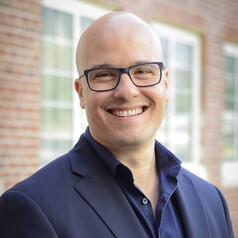
Orlando Laitano
Assistant Professor, University of Florida
Orlando Laitano, PhD is an Assistant Professor (tenure-track) in the Department of Applied Physiology and Kinesiology where he directs the Laboratory of Muscle and Environmental Physiology. Dr. Laitano conducts research on the mechanisms underlying sepsis-induced myopathy with disuse in aging and on the pathophysiology of exertional heat stroke. His lab uses pre-clinical models designed to address the complexities of clinical settings with the goal of improving human health. Dr. Laitano’s research has been funded by the National Institutes of Health and the Department of Defense. In addition, Dr Laitano has extensive practical experience assessing fluid balance and sweat test in elite athletes.
Less ![]()

Osamamen Oba Eduviere
Ph.D. Candidate in Religious Studies, University of Iowa
Osamamen Oba Eduviere is a third-year Ph.D. student in the Department of Religious Studies at the University of Iowa. Her research focuses on Nigerian women migrants in the United States and how they have used religion and food to facilitate their resettlement process. She has a keen interest in ethnography as a research method and has done extensive work using this methodology. A 2023 recipient of the Graduate Engagement Corps (GEC) grant award, Osamamen has been recognized by the Office of the Vice President for Research at the University of Iowa for her research on African women migrants in Iowa.
Less ![]()
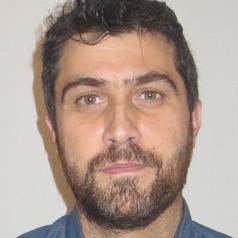
Oscar del Barco Novillo
Profesor Ayudante Doctor. Departamento de Física Aplicada., Universidad de Zaragoza
Finalicé mi licenciatura de Ciencias Físicas en junio de 1999 (Universidad de Granada) e
inicié mis estudios de doctorado bajo el programa "Química" de la Universidad de Murcia. Este programa interdisciplinar incluía, entre otros, el curso "Técnicas numéricas y de simulación" impartida por el catedrático Miguel Ortuño, el cual me propuso una línea de investigación sobre el tiempo túnel cuántico para electrones y fotones.
Utilizando métodos numéricos, logramos calcular el tiempo de tránsito de pulsos de distintas anchuras a través de distintos potenciales mediante el operador cuántico "tempus". Estos resultados constituyeron la base de mi tesis doctoral "Efectos de tiempo finito en el tiempo túnel para electrones y fotones" la cual defendí en 2007 con la calificación de "Apto cum laude por unanimidad". Publicamos nuestros resultados en la revista "Physical Review A" y "Physical Status Solidi".
Posteriormente, accedí a un puesto de profesor asociado en el área de Óptica en el laboratorio del catedrático Pablo Artal. Llevo impartiendo asignaturas de los grados de Física y Optometría durante 9 cursos académicos.
He desarrollado distintas líneas de investigación teóricas y experimentales en el campo de la Óptica a lo largo de mi carrera investigadora, correspondiendo a las siguientes temáticas:
- simulación de estructuras dieléctricas periódicas para generar "luz lenta" (reducción considerable de la velocidad de la luz para aplicaciones tecnológicas).
- modelado teórico de la intensidad de segundo armónico generada por fibras de colágeno corneales.
- estudio numérico de la longitud de localización en estructuras unidimensionales magnetoópticas.
- optimización numérica de multicapas periódicas dieléctricas para uso en tecnologías fotónicas.
- diseño teórico de un reflector dieléctrico omnidireccional en el rango del infrarrojo cercano.
- estudio teórico sobre agujeros negros primordiales y su relación con los estallidos de rayos gamma térmicos.
En la actualidad desempeño mi labor docente e investigadora en la Universidad de Zaragoza. Cuento con 19 artículos científicos publicados en revistas del JCR y 12 comunicaciones a congresos científicos internacionales.
Less ![]()
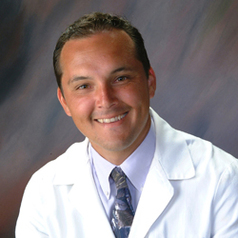
Oscar Marroquin
Associate Professor of Medicine, Epidemiology and Clinical and Translational Science, University of Pittsburgh
Dr. Marroquin leads UPMC’s health care data and analytics activities, overseeing a team of IT infrastructure architects, analysts, statisticians and data scientists focused on applying “big data” approaches to measure and predict clinical outcomes.
Also a practicing cardiologist at the UPMC Heart and Vascular Institute, Dr. Marroquin's academic career has focused on outcomes research in interventional cardiology and heart disease in women, and his research has been rewarded in the form of grants and numerous publications. He also has a background in the use of intravascular ultrasound and the assessment of the coronary microvasculature. Dr. Marroquin is a member of the American Medical Association, the American College of Physicians and a fellow of the American College of Cardiology and the Society of Cardiac Angiography and Interventions.
After completing his undergraduate and graduate work at the Universidad Francisco Marroquin in Guatemala, Dr. Marroquin completed his internship and residency in internal medicine at the Presbyterian Medical Center of the University of Pennsylvania. He completed his general cardiology and interventional cardiology fellowships at UPMC. Dr. Marroquin also received a certificate in clinical research from the National Heart, Lung, and Blood Institute-sponsored clinical research training program at the University of Pittsburgh School of Medicine.
Less ![]()
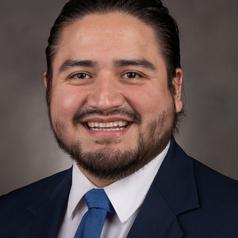
Oscar Miranda Tapia
PhD Student, Educational Leadership, Policy, and Human Development, North Carolina State University
Oscar Miranda Tapia, M.Ed. is a Research Associate at the Belk Center for Community College Leadership and Research and a Graduate Assistant at the William and Ida Friday Institute for Educational Innovation. He is also a PhD student and Provost Fellow at North Carolina State University pursuing his degree in Educational Leadership, Policy, and Human Development with a concentration in Higher Education Opportunity, Equity, and Justice. Before pursuing his degree, Oscar created and led first-generation initiatives at Elon University. Oscar’s research interests include college access and success, and students with DACA, undocumented, first-generation, and Latinx identities. Oscar holds a B.A. in Psychology from Elon University and an M.Ed. with a concentration in Higher Education from Harvard University.
Less ![]()
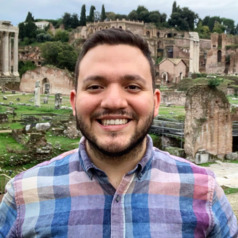
Oscar Oviedo-Trespalacios
A/Professor Responsible Risk Management, Delft University of Technology
I am a Professor in Misuse of Technology and Responsible Risk Management at Delft University of Technology.
Less ![]()
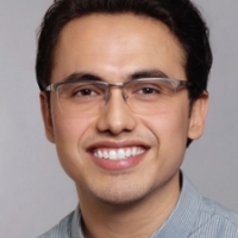
Oscar Rueda
Doctoral Researcher, Institute of Environmental Sciences, Leiden University
Oscar Rueda is a doctoral researcher at Leiden University and a senior managing consultant at South Pole. His past research on carbon dioxide removal (CDR) includes a scientific framework to assess CDR methods holistically, published in Global Environmental Change. The framework is the foundation of WBCSD’s corporate guide to responsible removals adoption. Oscar was the lead author of the scientific framework study and a co-lead author of WBCSD’s responsible removals guide. In October, Oscar joined the European Commission Expert Group meeting on industrial carbon removals.
Less ![]()
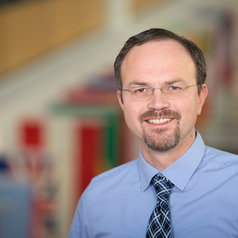
Osman Alp
Professor of Operations and Supply Chain Management, University of Calgary
I am a Professor of Operations and Supply Chain Management at the Haskayne School of Business, University of Calgary. My main research interests are in the integrated problems of supply chain management with a special focus in inventory and transportation management problems. In recent years, I am also working on problems related to sustainable transportation. My articles have appeared in schorlarly journals including Manufacturing & Service Operations Management, Production & Operations Management, Transportation Science, Operations Research, and OMEGA.
Less ![]()
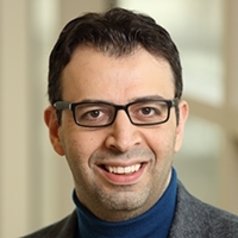
Osman Ozbulut
Associate Professor of Civil Engineering, University of Virginia
Osman Ozbulut is an Associate Professor of Civil Engineering in the Department of Engineering Systems and Environment at the University of Virginia. His research focuses on applying innovative materials, sensing technologies and interdisciplinary expertise to the development of resilient and sustainable civil infrastructure systems. He is particularly interested in: (i) development of innovative structural systems and design strategies to enhance the performance and safety of structures; (ii) application of advanced materials for disaster resistant design of structures as well as repair and retrofit of deficient and aging civil infrastructure; and (iii) development and application of novel structural health monitoring techniques for civil infrastructure systems.
Dr. Ozbulut is a member of the Society for Experimental Mechanics (SEM), American Society of Civil Engineers (ASCE), American Concrete Institute (ACI), Transportation Research Board (TRB), and Earthquake Engineering Research Institute (EERI) and SPIE – International Society for Optical Engineering. Dr. Ozbulut also serves as an Associate Editor for Journal of Intelligent Material Systems & Structures.
Less ![]()

Osmud Rahman
Associate Professor, School of Fashion, Toronto Metropolitan University
Osmud Rahman is an Associate Professor in the School of Fashion at Toronto Metropolitan University. His research interests span in a wide range of topics within the field of fashion, including cross-cultural studies, consumer behaviour, fashion design, body image, subculture, and sustainable development and practices. Prior to TMU, he taught as a Fashion Professor at the Savannah College of Art and Design in the United States and has considerable amount of industry experience in Hong Kong, Montreal, and Toronto. Osmud holds a PhD from the Concordia University, a master’s from the Royal College of Art, and has (co-)authored over 40 peer-reviewed papers in journals including Fashion Theory, Fashion Practice, Design Journal, International Journal of Design, International Journal of Fashion Design, Technology and Education, Asian Pacific Journal of Marketing and Logistics, and Journal of Retailing and Consumer Services. In addition, he has been serving as an Associated Editor for the Journal of Fashion Marketing and Management since 2018.
Less ![]()
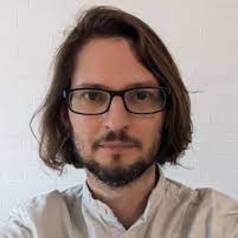
Ostap Kushnir
Lecturer in Politics and International Relations, University of Portsmouth
I am a Lecturer in Politics and International Relations at the University of Portsmouth. I am also a member of the Centre for European and International Studies Research.
My academic and research interests include European geopolitics, European regionalisation, and Central and Eastern European affairs (with a particular focus on post-communist transformation and civic activism in Ukraine, Russia, and Poland). I also have a background in mass communication and mass information.
I have written, edited, or co-edited three books on Russo-Ukrainian relations (Ukraine and Russian Neo-imperialism: The Divergent Break), regionalisation in Central and Eastern Europe (Intermarium: Polish-Ukrainian Linchpin of Baltic-Black Sea Cooperation), and post-communist transformation (Meandering in Transition: Thirty Years of Reforms and Identity in Post-Communist Europe). Apart from this, I have authored more than 25 peer-reviewed research articles/chapters and dozens of publications in the media.
In 2022-23 I worked as a political analyst for the Forum for Ukrainian Studies, University of Alberta (Canada), to identify and counter Russian disinformation in North American Media.
Since 2015, I have served as a member of the editorial board of the Central European Journal for International and Security Studies (CEJISS).
I am a supporter of the informational society and Western values. Philosopher on the topics of astropolitics and the digitized world. Populariser of science and car blogger. Fantasy writer.
For regular updates and insights into my work, you can follow me on @OstapKushnir.
Less ![]()
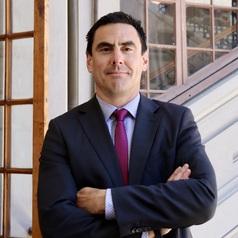
Osvaldo Urrutia
Associate professor, Pontificia Universidad Catolica de Valparaiso
Osvaldo Urrutia is a Chilean lawyer, international consultant and professor of international law at P. Universidad Católica de Valparaíso in Chile. He has 20 years of experience in international, regional, and local marine and fisheries affairs, including as Chairperson of the South Pacific Regional Fisheries Management Organisation (SPRFMO) and as Chair of the compliance committees in CCAMLR and SPRFMO. He holds a PhD from Victoria University of Wellington and an LL.M. in international law from the University College of London.
Less ![]()
- Market Data























